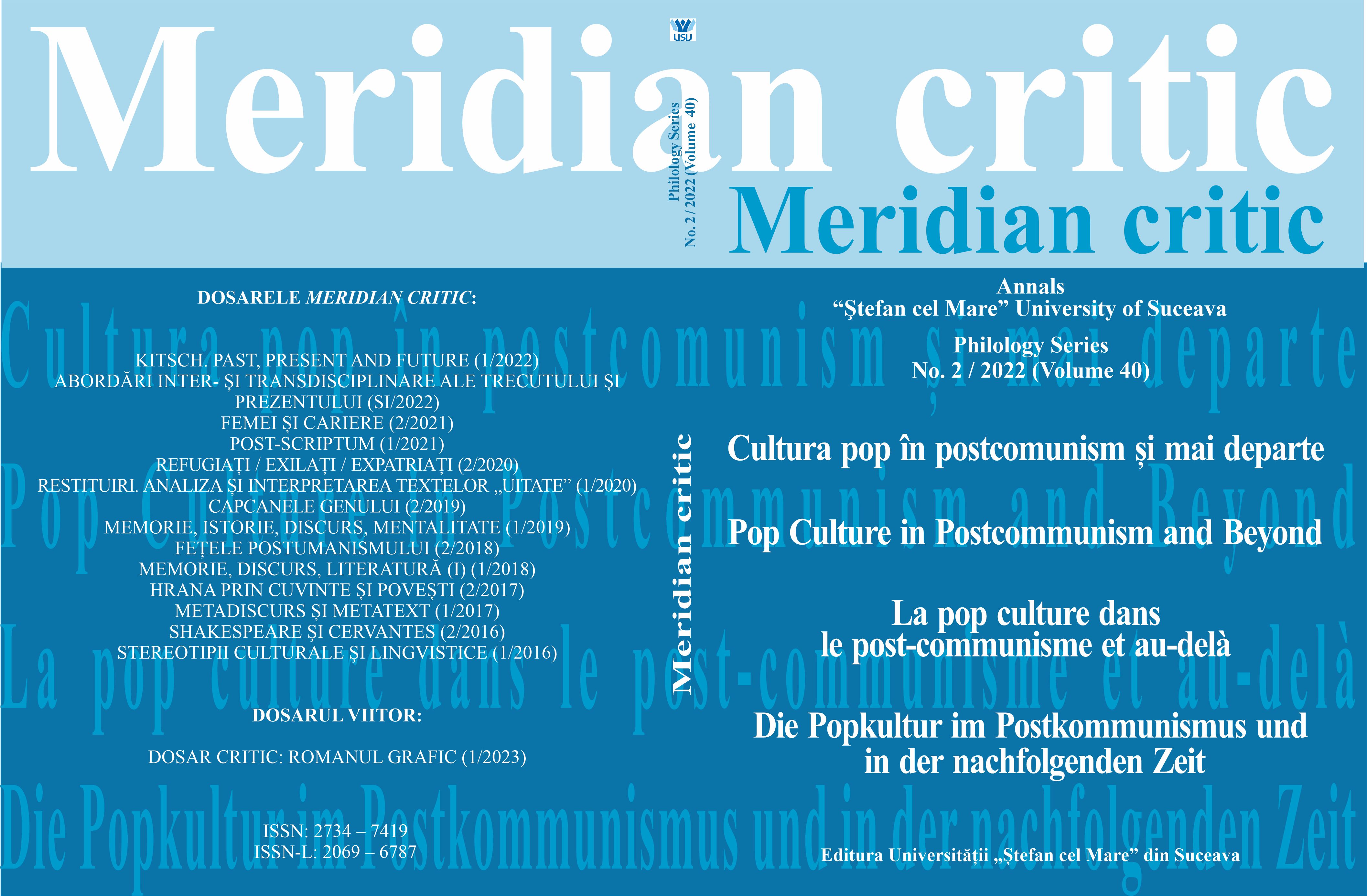Politics, Economics and the Institution of Pop Culture in Romania after the Fall of Communism
Politics, Economics and the Institution of Pop Culture in Romania after the Fall of Communism
Author(s): Ovidiu SOLONARSubject(s): Social Sciences, Language and Literature Studies, Communication studies
Published by: UNIVERSITATEA »ȘTEFAN CEL MARE« SUCEAVA
Keywords: American pop culture; post communism; rock music;
Summary/Abstract: Before 1989, the year when the communist regime was overthrown, Romania’s cultural landscape had been dominated by written culture and, in terms of music, only classical music had been seen as a truly cultural manifestation. Although the population was somewhat familiar with Western pop music, it was only after the fall of communism and the advent of capitalist modes of existence that pop music and culture, by means of audio and visual media, came into its own and gained legitimacy. Actually, the settlement of popular culture as such in Romania went hand in hand with the development of mass media, capitalist relations and a market economy. As life’s circumstances changed so did the ways in which people imagined the world or expressed their viewpoint on reality. In this context, previous cultural figures lost their political power while others went onstage and had the floor. This article traces some of developments that have become landmark events in the transition from an exclusive high culture to an inclusive popular one.
Journal: Meridian critic
- Issue Year: XL/2022
- Issue No: 2
- Page Range: 25-33
- Page Count: 9
- Language: English

